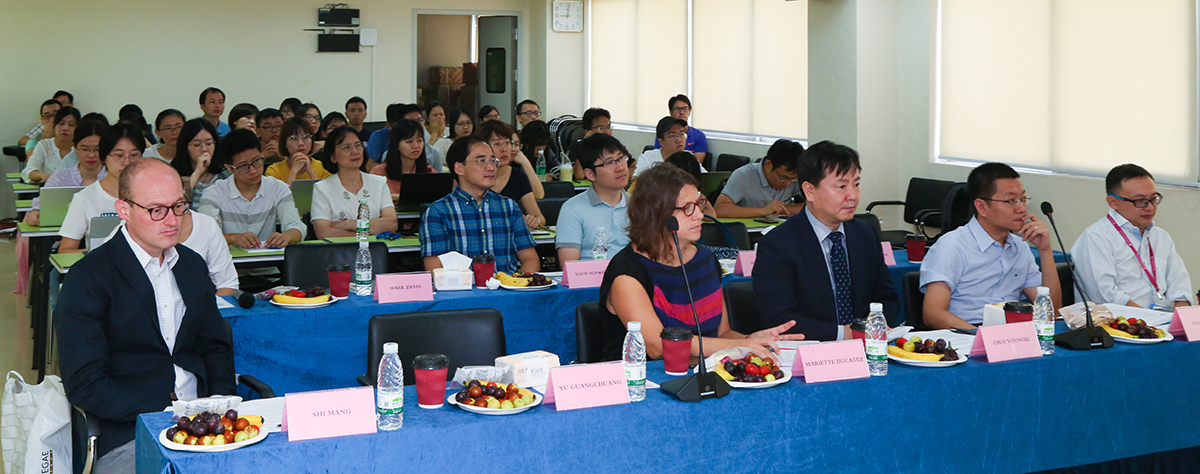SKLRD’s One Health Themed Zoonosis Seminar Satisfactorily Concluded
2019-10-161737On October 16, 2019, SKLRD’s One Health themed Zoonosis Seminar initiated by the research team of Professor Mark Zanin and Professor Sook San Wong was held.

SKLRD invited experts at home and abroad to the seminar to introduce the current efforts in studying existing and new zoonoses, and demonstrate how to monitor and study these diseases from different perspectives.

On the basis of the research conducted in the College of Medicine of Chungbuk National University, Professor Choi Youngki from South Korea introduced an animal model of a SFTSV-infected ferret with a severe fever and summarized the clinical symptoms of human diseases and the spread of viruses in humans. Dr. Mariette Ducatez, senior researcher of École Nationale Vétérinaire de Toulouse (National Veterinary School of Toulouse), elaborated the pathogenesis of a newly-discovered Influenza D virus in cattle and relevant regulatory measures; Professor Mang Shi from Sun Yat-sen University explained how to apply the new generation sequencing (NGS) technology to discover and represent pathogens of zoonoses; Professor Guangchuang Yu, deputy director of the Institute of Bioinformatics, Southern Medical University, demonstrated the data integration and visualization of phylogenetic tree of bioinformatics, and how it benefited homological analysis of influenza virus sequences.

Professor Jincun Zhao of SKLRD analyzed the application of T cells in MERS diagnosis and prognosis; Professor Zifeng Yang explained the clinical researches from sample collection to multigroup analysis, explored the regulation mechanism of severe human infection with avian influenza virus, and demonstrated the characteristics of innate and adaptive immune responses in avian influenza patients, and the role of virus population diversity in limited human-to-human transmission of avian influenza virus.

Furthermore, a characteristic practical operation training segment was arranged in this seminar. Researcher Mariette Ducatez was invited to provide attendees with practical training of basic sequence analysis and phylogenetic analysis, giving them a valuable opportunity to learn about the technical means to study molecular epidemiology.

Many existing and new infectious diseases of concern are zoonotic diseases. In response to that, the WHO put forward the concept of One Health and used it as an interdisciplinary cooperation framework to cope with zoonoses in the hope of achieving better health results. The experts at the seminar delivered fascinating academic reports, allowing the attendees to gain a new understanding of the monitoring and study of zoonoses. The experts and professors also pointed out that this seminar had allowed them to better understand the researches of SKLRD and Guangzhou Medical University in this regard, and expressed their hope for cooperation in scientific research, clinic and teaching.
















